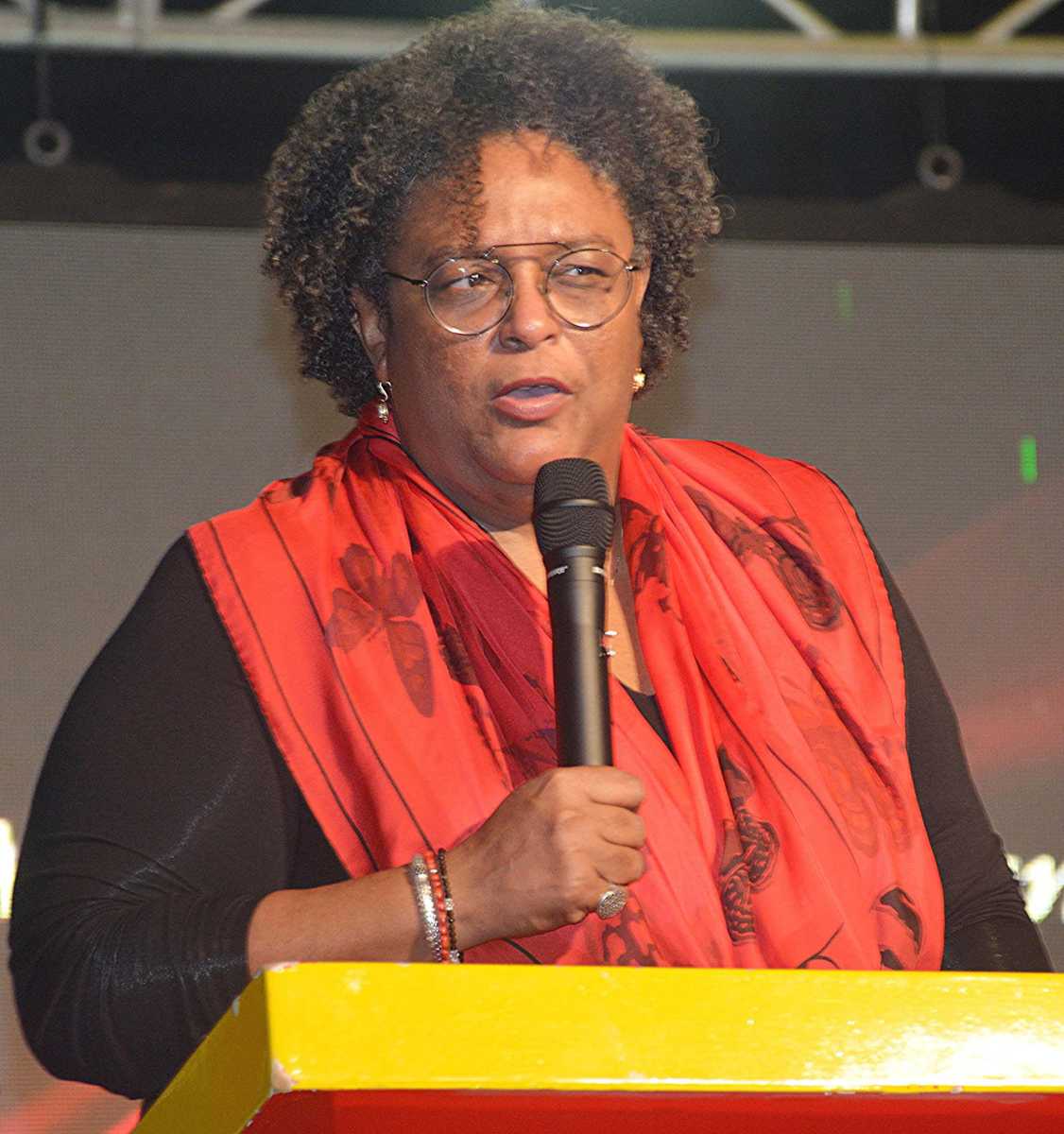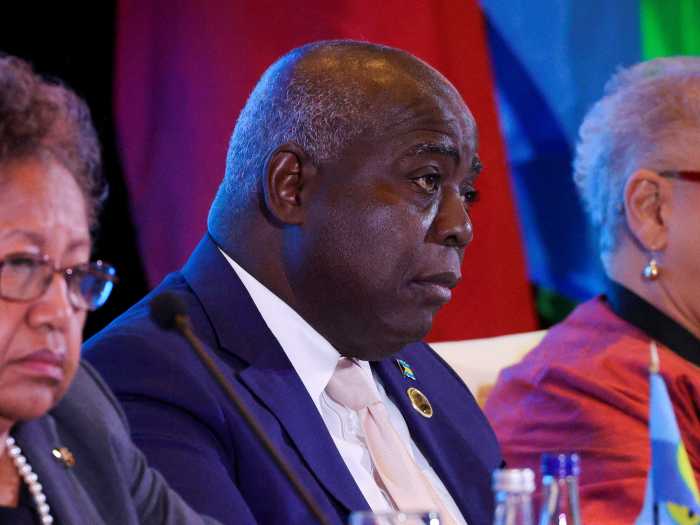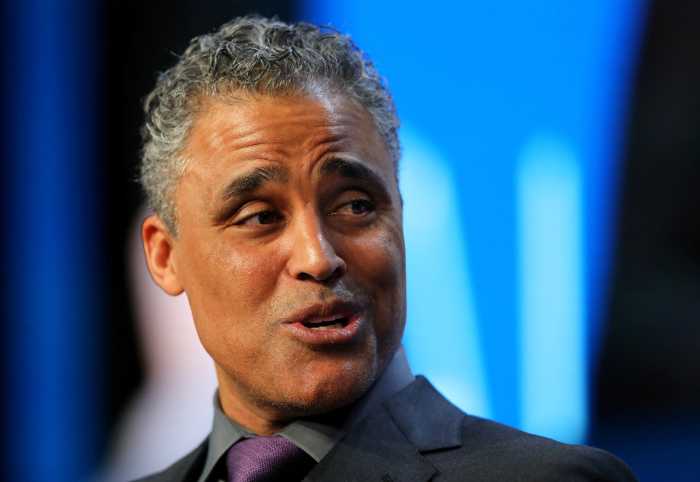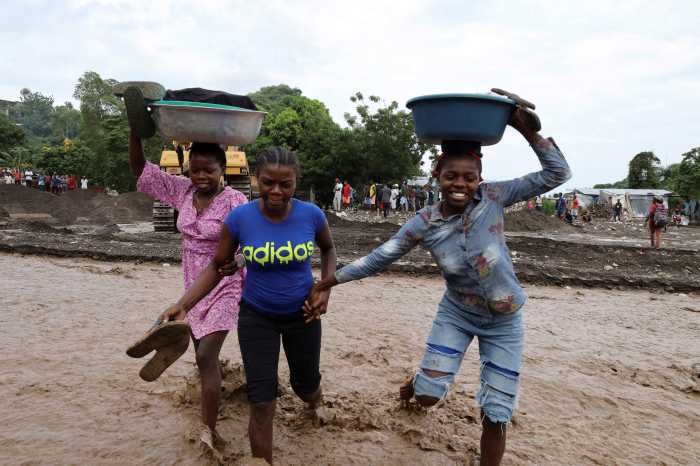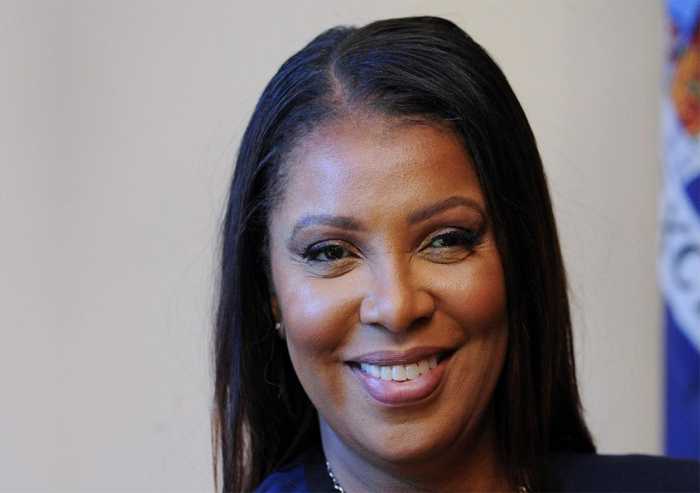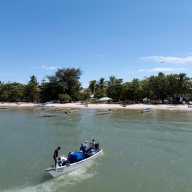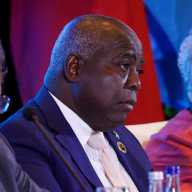Bahamas
The Bahamas National Statistical Institute (BNSI) says the country has recorded a 2.6 percent increase in real gross domestic product (GDP) last year as the Caribbean Community (CARICOM) country returns to pre-covid19 pandemic economic growth levels.
The BNSI said that the real GDP increased from US$13.5 billion in 2022 to US$12.83 billion in 2023 as the world emerged from the COVID 19 pandemic with the tourism sector leading the growth.
“According to the 2023 annual estimates, economic activity in The Bahamas increased significantly by 9.2 percent in nominal terms and 2.6 percent in real terms as business activity experienced modest gains.”
“When compared to 2022, the majority of industries showed marginal growth, while tourism-related industries experienced sizable growth. ”
“In 2023, the total value of goods and services produced in the Bahamian economy was estimated at US$14.3 billion in nominal prices, and US$13.8 billion in real prices,” said the BNSI in a statement.
The BNSI added that accommodation and food services, increased by US$226 million / 26 percent when compared to 2022 and that “this growth is directly connected to the increase in tourism arrivals.”
“As indicated by the Ministry of Tourism, the number of air and cruise tourist arrivals showed an increase of 24 percent, with 7.8 million visitors in 2022 compared to 9.7 million in 2023.”
CARICOM
Caribbean Community (CARICOM) leaders have been unable to sign off on the arrangements to facilitate the free and full movement of CARICOM nationals by the end of last month following their summit in Guyana earlier this year.
At the end of the summit in Guyana in February, Barbados Prime Minister Mia Mottley, who has lead responsibility for the CARICOM Single Market and Economy (CSME), had told reporters, “We are on target” as it pertained to the free movement of CARICOM nationals.
The regional leaders were due to have met in mid-March for the anticipated sign-off on the arrangements to facilitate the free and full movement of CARICOM nationals by the end of that month.
The CSME allows for the free movement of goods, skills, labor and services across the region.
Under the existing free movement of skills regime, persons seeking to work in member countries are required to obtain a CARICOM Skills Certificate. But all categories of workers would need a work permit for the country they are entering.
Mottley, in Guyana, told reporters then that the Community is on track to fulfill the mandate regional leaders gave at their historic 50th-anniversary summit in Trinidad and Tobago in July last year for free and full movement of CARICOM nationals from March31, 2024.
She said then that two outstanding matters must be resolved before full free movement can be operationalized.
Grenada
Grenada has started developing a food security crisis preparedness plan for the country in the event of a national hazard or external shocks such as global health pandemic.
The Ministry of Agriculture hosted a two-day workshop for several stakeholders as an initiative that will work in the best interest of the island.
Permanent Secretary in the Ministry of Agriculture, Isaac Bhagwan said, “It will help define the role of various organizations and agencies, it will also look at the timeline for the implementation for early warning and to look at the institutional framework. In other words, this food security crisis preparedness plan needs to be driven by data.”
Bhagwan told the opening ceremony that the data must be collected and analysed and “must be able to speak to the issue that is affecting us and these are the information that will be given to our policymakers such as the cabinet and other senior government officials who need to make decisions.”
Continuing, he said that the government had requested a US$10 million loan in September 2023 from the World Bank under the Crisis Response Window Early Response Financing Facility (ERF) as part of its plan to respond to the worsening acute food security condition.
Guyana
Guyana had recently received two India-made Dornier aircraft for the country’s Defence Force (GDF).
President Irfaan Ali posted pictures on his Facebook page showing the Hindustan Aeronautics Ltd. (HAL) Dornier 228 planes which arrived at the Cheddi Jagan International Airport aboard two Boeing C-17 Globemaster military transport planes.
The arrival of the two short take-off and landing (STOL) aircraft followed the signing of a US$23.27 million loan agreement between the Ministry of Finance and the Export-Import Bank of India for financing the purchase on March 15.
The HAL 228 planes are said to be ideal for STOLs on Guyana’s terrain and would be used for maritime patrols as well as resupply of military bases and troop movement to interior locations.
India’s High Commissioner to Guyana, Dr. Amit Telang said recently that the line of credit (LOC) agreement is the first ever defence LOC signed with the Caribbean region.
Guyana and India established diplomatic relations on May 26, 1966.
Haiti
Heavy gunfire erupted in the downtown area of Haiti’s capital, as police battled gang members near the National Palace for several hours.
Local media reported that at least one policeman was shot after he and other officers were forced to flee an armoured car that was later set on fire.
Several people were trapped by the gunfire in Port-au-Prince while many others managed to flee.
The latest gun battle comes more than a month after powerful gangs began attacking key government infrastructure. They have torched police stations, opened fire on the main international airport that remains closed and stormed the country’s two biggest prisons, releasing more than 4,000 inmates.
The violence has somewhat subsided in certain areas since the attacks began on Feb. 29, but gunfire still echoes daily.
At least 1,554 people have been reported killed up to March 22 and another 826 injured, according to the UN.
The situation forced Prime Minister Ariel Henry to announce his resignation as soon as a transitional council is created. The proposed transitional council of nine members, which has yet to be formally established, will be responsible for choosing a new prime minister and council of ministers.
St. Lucia
The St. Lucia government says it raised revenue totaling EC$1.68 billion during the 2023-24 fiscal year in order to finance government operations and capital projects.
Prime Minister and Minister of Finance Phillip J Pierre said that his administration had also been able to keep within the 2024-2024 budget ceiling of EC$1.856 billion.
He said preliminary data up to February to his year points to the government spending approximately EC$1.69 billion for the fiscal year 2023-2024, an estimated 9.3 percent below the approved estimates.
“The analysis shows that the results of this fiscal year, illustrating as n improvement in the performance of the St. Lucian economy. These surpluses are not to be interpreted as the government having extra cash.
Instead, it is the result of the prudent fiscal management of the country’s finances, which allowed it to more than meet it’s recurrent expenditure, leaving excess revenue to cover, in part, the country’s debt obligations in interest payments and principal payments,” Pierre said.
— Compiled by Devika Ragoonanan


